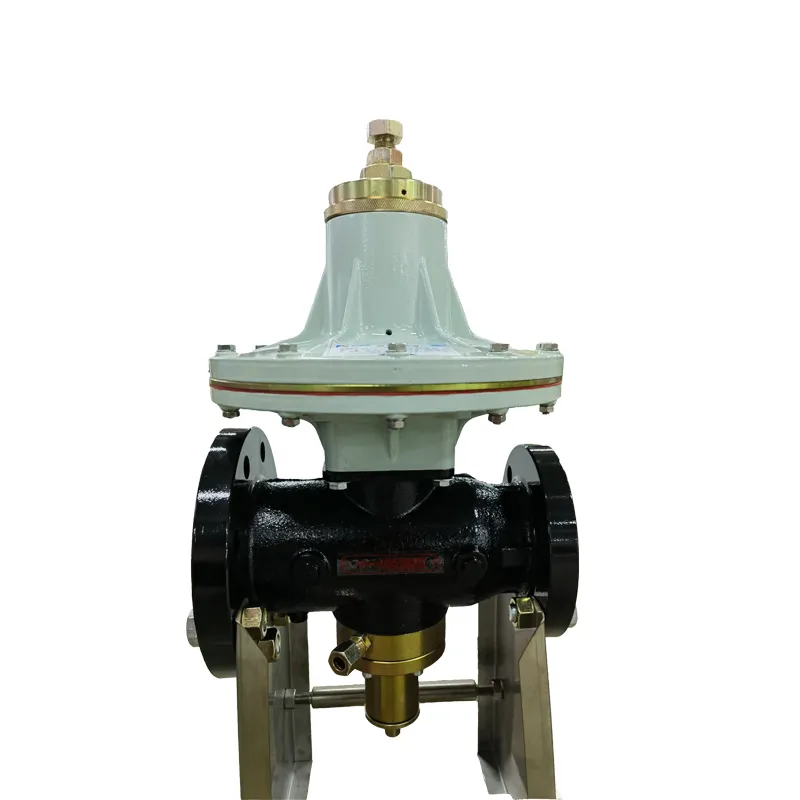
Nov . 05, 2024 14:54
Back to list
shut-off valve
Understanding Shut-Off Valves A Key Component in Fluid Control Systems
Shut-off valves play a crucial role in various fluid control systems, acting as gatekeepers that regulate the flow of liquids or gases within pipes. These valves are designed to either completely stop or allow the passage of fluids, ensuring safety and efficiency in numerous applications, from residential plumbing to industrial processes.
What is a Shut-Off Valve?
A shut-off valve is a device used to stop the flow of a fluid through a pipe or pipeline. When the valve is in the 'closed' position, it blocks the passage of the fluid, while in the 'open' position, it allows unimpeded flow. This basic functionality makes shut-off valves critical in managing fluid transport, preventing leaks, and isolating sections of a system for maintenance or repair.
Types of Shut-Off Valves
Shut-off valves come in various types, each designed for specific applications and operational needs. The most common types include
1. Ball Valves Featuring a spherical disc that controls flow, ball valves are known for their durability and ability to provide a tight seal. They are commonly used in applications requiring quick shut-off and high flow capacities.
2. Gate Valves These valves operate by raising or lowering a gate to control fluid flow. They are typically used in on/off applications and are preferred for their low-pressure drop and reliability. However, they are not suited for throttling due to turbulence when partially opened.
3. Butterfly Valves Utilizing a rotating disc to regulate flow, butterfly valves are compact and lightweight, making them ideal for large piping systems where space is limited. They can be used for throttling in addition to shut-off applications.
shut-off valve

4. Globe Valves Designed with a spherical body, globe valves are known for their excellent throttling capabilities. While they are not the best choice for quick shut-off, they excel in regulating fluid flow.
Applications of Shut-Off Valves
Shut-off valves have extensive applications across various industries. In residential settings, they are essential for plumbing systems, allowing homeowners to quickly turn off water supply during emergencies or for maintenance tasks. In industrial contexts, shut-off valves are used in chemical processing, oil and gas transportation, and wastewater management, where controlling fluid flow is critical to safety and operational efficiency.
Importance of Shut-Off Valves
The significance of shut-off valves cannot be overstated. They are integral in ensuring the safety of fluid systems, particularly in preventing leaks that could lead to hazardous situations. For example, in gas pipelines, a malfunctioning valve could result in dangerous gas leaks, posing threats to both human safety and the environment. By allowing for the quick and efficient isolation of sections of a pipeline, shut-off valves facilitate maintenance and repairs without disrupting the entire system.
Moreover, shut-off valves contribute to energy efficiency. By providing precise control over fluid flow, they help prevent waste and reduce energy consumption in heating and cooling systems. With advancements in technology, modern shut-off valves are increasingly equipped with automation features, allowing for remote operation and monitoring, further enhancing efficiency and safety.
Conclusion
In summary, shut-off valves are essential components in a wide array of fluid control systems. Their ability to regulate the flow of liquids and gases ensures safety, efficiency, and reliability across various applications. Whether in residential plumbing, industrial processes, or energy management systems, shut-off valves play a vital role in maintaining the integrity of fluid transport systems. Understanding the different types and applications of these valves can help industries and homeowners alike make informed choices for their fluid control needs, ultimately leading to safer and more efficient operations. As technology continues to evolve, the future of shut-off valves promises even greater advancements in functionality and safety.
Next:
Latest news
-
Safety Valve Spring-Loaded Design Overpressure ProtectionNewsJul.25,2025
-
Precision Voltage Regulator AC5 Accuracy Grade PerformanceNewsJul.25,2025
-
Natural Gas Pressure Regulating Skid Industrial Pipeline ApplicationsNewsJul.25,2025
-
Natural Gas Filter Stainless Steel Mesh Element DesignNewsJul.25,2025
-
Gas Pressure Regulator Valve Direct-Acting Spring-Loaded DesignNewsJul.25,2025
-
Decompression Equipment Multi-Stage Heat Exchange System DesignNewsJul.25,2025

